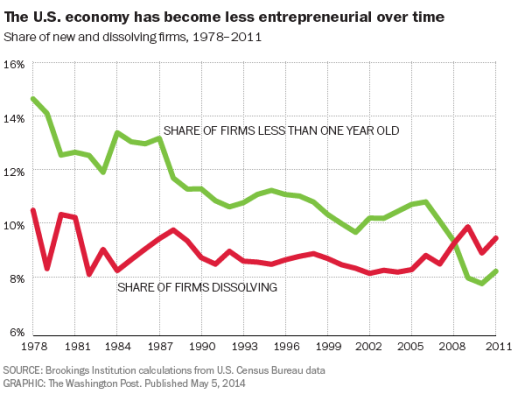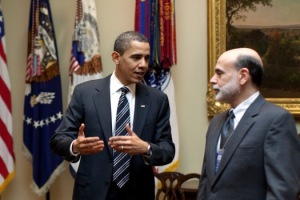This article was originally published at ValuesandCapitalism.com on June 6, 2012.
Once the public realized that NYC Mayor Michael Bloomberg wasn’t joking about his plan to ban the sale of large sugary drinks within city limits, people responded with fierce (and predictable) uproar. Left looking like a loser, Bloomberg is obviously out of touch with the “leave me alone!” mentality of average Joes, who’d rather decide for themselves how much is too much when it comes to soda consumption.
But this whole fiasco did raise an important, though all-too-familiar, question that I think many proponents of the free market have not actually resolved for themselves. That is: Does the free market give rise to a culture of excess, where Big Gulps and Big Macs become the unhealthy norm?
It’s an honest question, and one I suspect secretly haunts many public supporters of free markets. The answer is certainly not obvious, and what lies on the surface seems to speak ill for proponents of free markets. Before answering, however, there are three characteristics of the free market to take into consideration.
First, the free-market economy is nothing more than what arises due to the respect of individual property rights.
So even if it were the case that free markets lead to unhealthy portion sizes and excessive consumption, the alternative would entail the arbitrary restriction of individual liberties, which inevitably leaves many people unhappy—stripped of liberties they once exercised in peace—and distorts otherwise rational economic calculation.
Then the battle becomes one of whose proposed laws to enforce (sound familiar?). And if an effective law is created—that is, one that alters the way otherwise free individuals behave—the harm to society far outweighs the harm of “excessive consumption.” Indeed, when consumption is regulated by a select few bureaucrats instead of by prices—that is, by millions of consumers transacting every minute—the opportunity for cataclysmic error is wildly intensified. Markets possess various means for correcting misallocations—the same cannot be said about government. If the state passes a minimum wage law that creates unemployment, for example, there can be no real correction to restore employment until they pass another counteractive law, which can take years.
Allowing government to pick and choose which liberties to grant is never a good idea.
Second, lots of seemingly wasteful consumption does not necessarily mean “excessive” consumption.
It may be the case that the mainstream media (and government, for that matter) all but assumes that nobody actually needs more than one big-screen TV, three gas-guzzling SUVs or even a Big Gulp. But who is to say that such consumption is actually “unhealthy” or bad for society?
The fact is, over time the free market identifies and weeds out those who misallocate resources toward objectively excessive levels of anything—consumption included. Thus, there is no need to seek government’s help to discover and put an end to excessive consumption.
For example, the dot-com bubble of the late 1990s entailed of huge levels of investment in the Internet sector—a sector which lacked the fundamentals to support those levels of investment. Spurred on by loose credit policies pursued by the Federal Reserve, this ultimately led to the catastrophic collapse of many large Internet companies in the early 2000s. Excessive levels of investment were thus punished by the market, and healthier levels were ultimately restored. There is no way anyone (including government) could have known, however, what profit margins were “too high” or how much investment was “too much” in the midst of the dot-com bubble. And any blanket mandate would have been hopelessly arbitrary, causing further resource misallocation and perhaps disadvantaging those companies that were indeed solvent and would have survived the bust.
In a similar way, soda consumption is regulated by the market. Those who consume an excessive amount of soda are (supposedly) more likely to develop disease over time. Thus, those who abstain are equipped to be relatively more productive, and others—especially those in the future—can observe their mistake and seek to avoid it. There is no telling, however, how much soda is “too much” soda for each individual person, just as there was no telling how much profit was too much profit during the dot-com bubble. The primary lesson is that truly excessive levels of consumption are only revealed through the market process, and are not always identifiable by scientists or experts.
Third, enforcing a law based on modern-day science can prevent efficient resource allocation in the future.
By this I mean that blanket bans on certain products or substances in the present prevents the use of them by responsible users and for research and development purposes in the future, thereby suppressing any benefits that they might otherwise have.
While it certainly seems to be the case that Big Gulps cannot possibly be healthy for anyone, it would be arrogant for any single person to assert that everything about Big Gulps is universally unhealthy and that they ought to be erased from existence. There is no telling what the future may hold. When dealing with nonviolent behavior (like drinking Big Gulps), it is always safer to err on the side of tolerance, as by doing so, only those who engage in the questionable behavior are harmed.
So to answer my initial question: No, the free market does not promote “excessive consumption” except according to those who claim the authority to know with certainty when everyone else is consuming too much. The free market promotes sustainable consumption levels, and rewards those who consume at the healthiest levels, Big Gulps included.


 This article was originally published at
This article was originally published at 